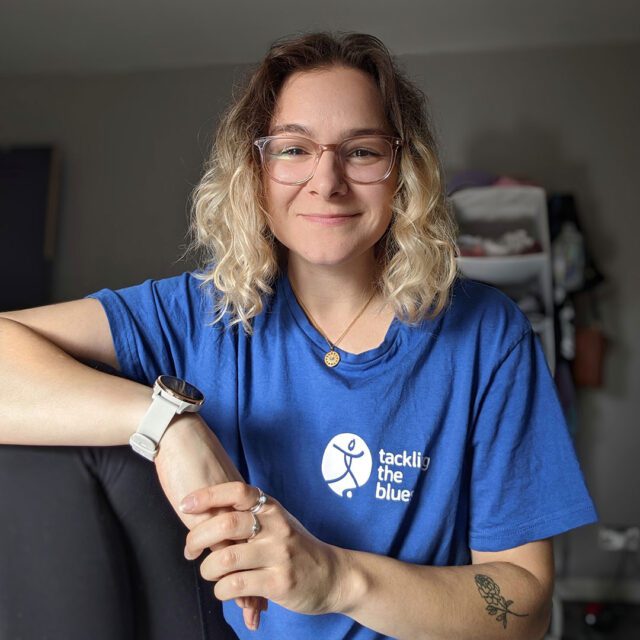Erika Seltenreich-Hodgson
Performance Lifestyle Practitioner under the English Institute of Sport specifically for British Athletics
MSc Sport, Physical Activity and Mental Health

This course will prepare you for a lot of different physical activity and mental health related career paths and you’ll get out of this course what you put into it.
There were lots of great things about the course. What really pushed it above and beyond, though, were the people. Also the iced salted caramel lattes from the Catalyst café really got me through those morning classes.
I learned so much about mental health programming and policy. Particularly how to use my existing research skills to take academic resources and translate them into colloquial use for presentations and educational purposes. All those skills and the way they connect to each other have greatly helped me both in my search for work and my current position.
All the assignments and presentations we did on this degree are applicable to real world jobs or skills in physical activity and mental health related fields. I felt like doing my homework was practicing for work.
One of the modules also involved learning about the many different career fields. This was incredibly helpful and one of the presentations was actually what led me to discovering the existence of my current work position.
Presenting skills, reporting and confidence in the field. These are the top 3 skills I gained from my degree. My presentation skills have notably improved, and this was an area I’ve always really struggled in. I’ve also developed in creating a report/brief/presentation for an organisation that evaluates their mental health framework by translating research into practice while being accessible in language to individuals who may be less mental health literate. My confidence for working and communicating in this field has also grown.
My lived experience as an elite athlete in Canada who struggled with athlete identity is what inspired me to pursue my current career. I hadn’t really developed myself personally or vocationally outside of my commitment to sport and this resulted in a mental health and identity crisis when I retired from elite sport and tried starting my life as a non-athlete.
I realised that my experience was not unique. I decided I wanted to actively play a role in making sure other elite athletes are supported and encouraged to develop themselves as a person beyond their performances.
Every day is different in my current role. Sometimes it’s coaching and supporting athletes in 1 to 1 sessions, sometimes it’s brainstorming new forms of engagement with my co-workers, sometimes it’s creating research based resources for athletes, and sometimes it’s organising workshops.
I came to this degree to make a difference and help elite athletes develop holistically and that’s exactly what I’m doing right now. So, for as long as I enjoy and feel passionate about this role, I’d like to keep doing it. It would be cool to work with some other sports in addition to British Athletics.
This course will prepare you for a lot of different potential physical activity and mental health related career paths. You’ll get out of this course what you put into it.
As an international student from Canada, the biggest thing for me was how different the grading system is here. I still don’t have a solid grasp on it either, I had grade goals of course, but they didn’t mean much to me, so I mostly just had to trust that I was doing the best work I could, and then read the feedback to understand where I was at. I found this better than basing it off a number that meant something completely different here than it did in my undergraduate degree in Canada.
Constantly looking the wrong way before I cross the street has also been pretty common. But the people are amazing so friendly, and I never once felt I didn’t have someone or some place to turn to for support or to answer questions I had navigating this big life change, so that made it seem manageable. I would do it again in a heartbeat.